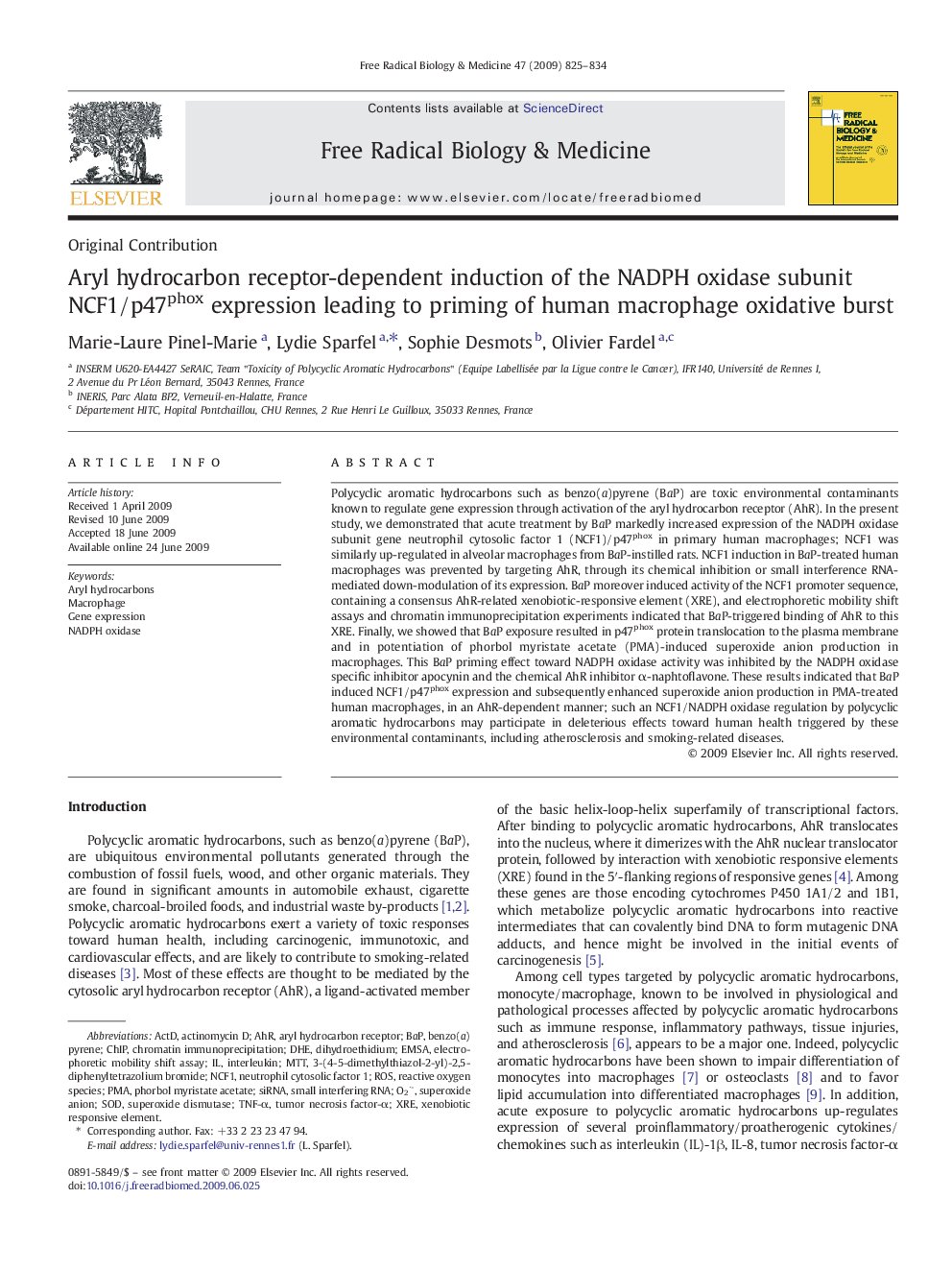| کد مقاله | کد نشریه | سال انتشار | مقاله انگلیسی | نسخه تمام متن |
|---|---|---|---|---|
| 1909822 | 1046741 | 2009 | 10 صفحه PDF | دانلود رایگان |

Polycyclic aromatic hydrocarbons such as benzo(a)pyrene (BaP) are toxic environmental contaminants known to regulate gene expression through activation of the aryl hydrocarbon receptor (AhR). In the present study, we demonstrated that acute treatment by BaP markedly increased expression of the NADPH oxidase subunit gene neutrophil cytosolic factor 1 (NCF1)/p47phox in primary human macrophages; NCF1 was similarly up-regulated in alveolar macrophages from BaP-instilled rats. NCF1 induction in BaP-treated human macrophages was prevented by targeting AhR, through its chemical inhibition or small interference RNA-mediated down-modulation of its expression. BaP moreover induced activity of the NCF1 promoter sequence, containing a consensus AhR-related xenobiotic-responsive element (XRE), and electrophoretic mobility shift assays and chromatin immunoprecipitation experiments indicated that BaP-triggered binding of AhR to this XRE. Finally, we showed that BaP exposure resulted in p47phox protein translocation to the plasma membrane and in potentiation of phorbol myristate acetate (PMA)-induced superoxide anion production in macrophages. This BaP priming effect toward NADPH oxidase activity was inhibited by the NADPH oxidase specific inhibitor apocynin and the chemical AhR inhibitor α-naphtoflavone. These results indicated that BaP induced NCF1/p47phox expression and subsequently enhanced superoxide anion production in PMA-treated human macrophages, in an AhR-dependent manner; such an NCF1/NADPH oxidase regulation by polycyclic aromatic hydrocarbons may participate in deleterious effects toward human health triggered by these environmental contaminants, including atherosclerosis and smoking-related diseases.
Journal: Free Radical Biology and Medicine - Volume 47, Issue 6, 15 September 2009, Pages 825–834